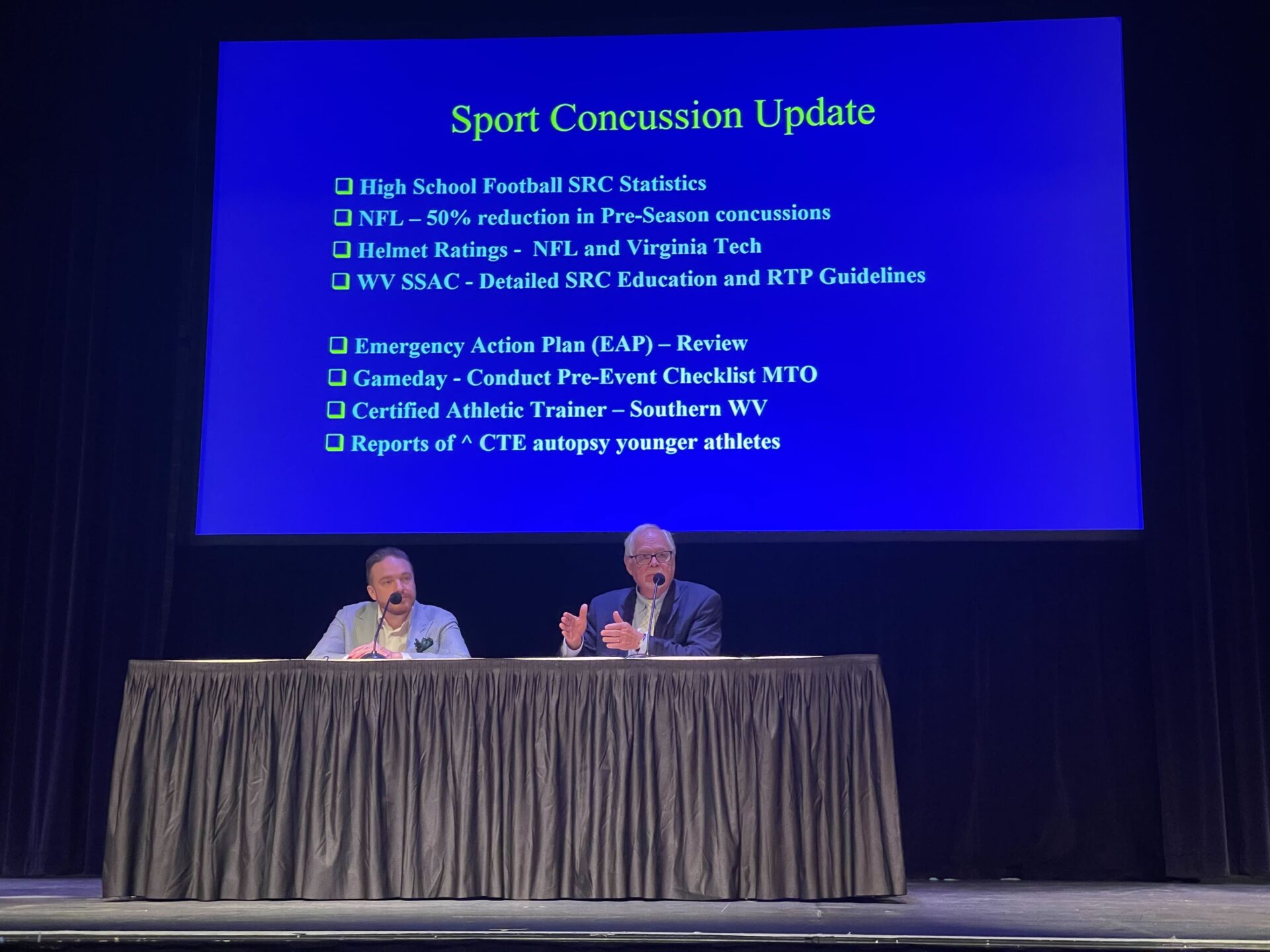After recent youth football deaths nationwide, including that of a Boone County middle schooler last month, the Kanawha-Charleston Health Department hosted a Thursday morning discussion to educate coaches, staff, athletic directors, and youth league leaders on detecting signs of head injuries in youth sports.
“You have to be vigilant on the sidelines, watching frequently,” Dr. Calvin Whaley, a neurosurgeon who has treated deadly youth head injuries, said at the panel. “Our athletes are not going to tell us when they are experiencing signs of a concussion.
Whaley pointed to headache, nausea or vomiting, and balance or coordination problems as leading symptoms of a concussion. If exhibiting symptoms, athletes should be removed from play and assessed. Whaley cautioned that symptoms of more severe, possibly fatal, head injuries that need emergency medical attention include loss of consciousness for over a minute, fluid coming out of the nose or ears, or progressively worsening signs of confusion.
Dr. Jim Kyle, an emergency physician, directed attendees to Friday Night Medical Timeout resources to help those on the sidelines to be prepared in case of an injury.
“This discussion is really to bring to light how important it is to prevent unnecessary concussions and [symptom] recognition so that parents, teachers, coaches, referees, athletic directors, pull kids out of play after they sustain a concussion and get them evaluated before they return to play,” Dr. Steven Eshenaur, KCHD Health Officer and Executive Director of the Kanawha-Charleston health department, said.
The West Virginia Secondary School Activities Commission requires a medical professional to clear athletes returning from a concussion for play. Whaley said clearance should follow updated protocol that takes at least five days off from play.
The panel and following audience discussion also pointed to expanding access to athletic trainers, correcting tackle form to eliminate impacting the heads, and reducing time spent on risky contact drills during practice.
The Health Department partnered with Kanawha County Emergency Ambulance Authority for the event, which was also open to surrounding counties. The next session in the series will be on October 9, geared towards medical professionals. Details will be on The Kanawha County Ambulance Facebook page.
